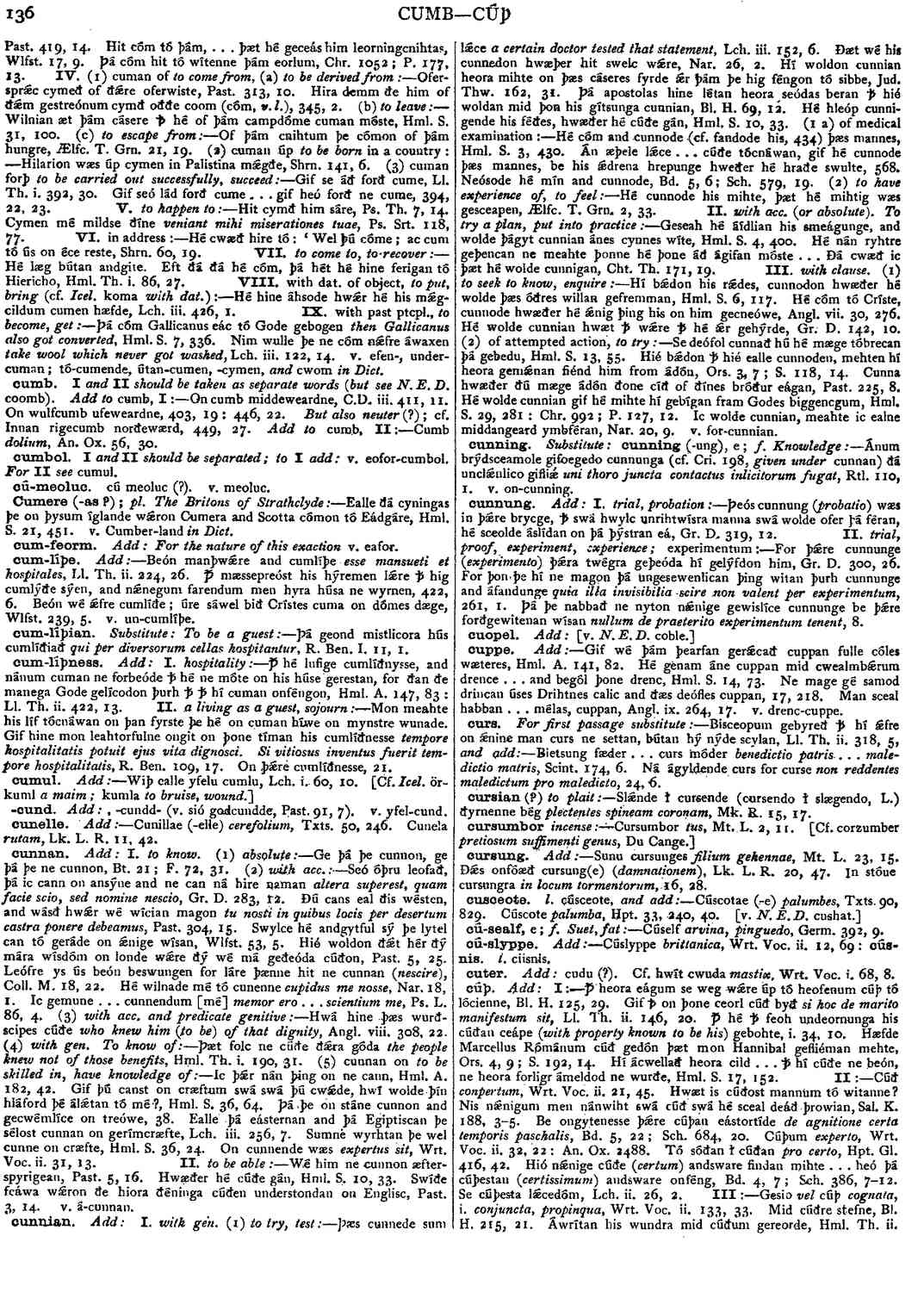cunnan
-
Ge þá þe cunnon, ge þá þe ne cunnon,
- Bt. 21; F. 72, 31.
-
Seó óþru leofað, þá ic cann on ansýne and ne can ná hire naman
altera superest, quam facie scio, sed nomine nescio,
- Gr. D. 283, 12.
-
Ðú cans eal ðis wésten, and wásð hwǽr wé wícian magon
tu nosti in quibus locis per desertum castra ponere debeamus,
- Past. 304, 15.
-
Swylce hé andgytful sý þe lytel can tó geráde on ǽnige wísan,
- Wlfst. 53, 5.
-
Hié woldon ðǽt hér ðý mára wísdóm on londe wǽre ðý wé má geðeóda cúðon,
- Past. 5, 25.
-
Leófre ys ús beón beswungen for láre þænne hit ne cunnan (
nescire
),- Coll. M. 18, 22.
-
Hé wilnade mé tó cunenne
cupidus me nosse,
- Nar. 18, 1.
-
Ic getnune . . . cunnendum [mé]
memor ero . . . scientium me,
- Ps. L. 86, 4.
-
Hwá hine þæs wurð*-*scipes cúðe
who knew him (to be) of that dignity,
- Angl. viii. 308, 22.
-
Þæt folc ne cúðe ðǽra góda
the people knew not of those benefits,
- Hml. Th. i. 190, 31.
-
Ic þǽr nán þing on ne cann,
- Hml. A. 182, 42.
-
Gif þú canst on cræftum swá swá þú cwǽde, hwí wolde þín hláford þé álǽtan tó mé?,
- Hml. S. 36, 64.
- Þá þe ón stáne cunnon and gecwémlíce on treówe, 38.
-
Ealle þá eásternan and þá Egiptiscan þe sélost cunnan on gerímcræfte,
- Lch. iii. 256, 7.
-
Sumne wyrhtan þe wel cunne on cræfte,
- Hml. S. 36, 24.
-
On cunnende wæs
expertus sit,
- Wrt. Voc. ii. 31, 13.
-
Wé him ne cunnon æfter*-*spyrigean,
- Past. 5, 16.
-
Hwæðer hé cúðe gán,
- Hml. S. 10, 33.
-
Swíðe feáwa wǽron ðe hiora ðéninga cúðen understondan on Englisc,
- Past. 3, 14.
Bosworth, Joseph. “cunnan.” In An Anglo-Saxon Dictionary Online, edited by Thomas Northcote Toller, Christ Sean, and Ondřej Tichy. Prague: Faculty of Arts, Charles University, 2014. https://bosworthtoller.com/42233.
Checked: 0